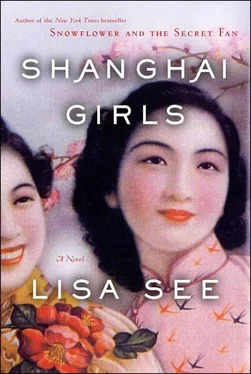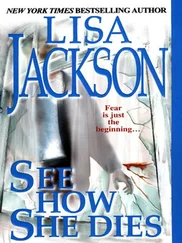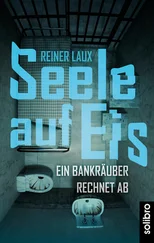The agent enters the café, and Uncle Charley follows with his head hung down. The lo fan walks right up to Sam, flashes his badge, and says in Sze Yup, “I’m Special Agent Jack Sanders. You’re Sam Louie, right?” When Sam nods, the agent goes on. “I always say there’s no point in wasting time on these things. Someone told us you used to buy the China Daily News .”
Sam stands absolutely still, measuring the stranger, thinking about his answer, emptying his face of emotion. The few customers, who can’t possibly understand the words but certainly know that the flashing badge can’t mean anything good, seemingly hold their breath to see what Sam will do.
“I bought the paper for my father,” Sam says in Sze Yup, and I see the disappointment on our customers’ faces that they aren’t going to be able to follow this as closely as they’d like. “He died five years ago.”
“That paper is sympathetic to the Reds.”
“My father read it sometimes, but he subscribed to Chung Sai Yat Po .”
“Seems like your father was sympathetic to Mao though.”
“Not at all. Why would he support Mao?”
“Then why did he buy China Reconstructs too? And why have you continued to buy it after his passing?”
I have a sudden desire to use the toilet. Sam can’t possibly answer with the truth-that his wife’s and sister-in-law’s faces have appeared on the covers of those magazines. Or does the FBI man already know that those are our faces? Or does he look at the pretty girls in the drab green uniforms with red stars on their caps and think all Chinese look alike?
“I’m told that in your living room above your couch you have pages from the magazine taped to the wall-pictures of the Great Wall and the Summer Palace.”
This means someone-a neighbor, a friend, a competitor who has been inside our home-has reported this. Why didn’t we take the pictures down after Father died?
“In his last months, my father liked to look at those attractions.”
“Maybe he had so much sympathy for Red China he wanted to go back home-”
“My father was an American citizen. He was born here.”
“Then show me his documents-”
“He’s dead,” Sam repeats, “and I don’t have them here.”
“Then perhaps I should pay a visit to your home, or would you prefer to come to our office? That way you can bring your documents too. I want to believe you, but you have to prove your innocence.”
“Prove my innocence or prove I’m a citizen?”
“They are the same, Mr. Louie.”
When I get home with Vern’s lunch, I don’t say anything to him or to Joy. I don’t want them to worry. When Joy asks if she can go out that night, I say as lightly as I can, “Fine. Just try to be back by midnight.” She thinks she’s finally triumphed over her mother, but I want her out of the house.
As soon as Sam and May come home, we strip the pictures the agent talked about off the walls. Sam bags up every copy of the China Daily News that my father-in-law saved because of some article or other. I order May to go into her drawer and pull out the magazine covers that Z.G. painted of the two of us.
“I don’t think this is necessary,” May says.
I respond sharply: “Please, for once, don’t argue with me.” When May doesn’t move, I sigh impatiently. “They’re only pictures on magazine covers. Now if you won’t get them, I will.”
May purses her mouth and turns to go out to the screened porch. Once she’s left, I look for photographs that I think might be-and here’s a word I never thought I’d use-incriminating.
While Sam makes another tour through the house, May and I take what we’ve gathered to burn in the incinerator. I set fire to my pile of photographs and wait for May to throw in the magazine covers, which she hugs to her chest. When she doesn’t move, I wrest them from her arms and drop them in the fire. As I watch the face -my face-that Z.G. so beautifully and perfectly painted curl in the flames, I wonder why we let any of these things creep into the house. I know the answer. Sam, May, and I are no better than Father Louie. We’ve become American with our clothes, our food, our language, our desire for Joy’s education and future, but not once in all these years have we stopped missing our home country.
“They don’t want us here,” I say softly my eyes on the flames. “They’ve never wanted us. They’re going to try to trick us, but we need to trick them in return.”
“Maybe Sam should confess and get it over with,” May suggests. “That way he’ll get his citizenship and we won’t have to worry about any of this.”
“You know it’s not enough for him just to confess his own status. He’ll have to expose others-Uncle Wilburt, Uncle Charley, me-”
“You should all confess together. Then you can all get your legal citizenship. Don’t you want it?”
“Of course I want it. But what if the government is lying?”
“Why would the government lie?”
“When hasn’t it lied?” And then, “What if they decide to deport us? If Sam is proved to be illegal, then I’ll be eligible for deportation too.”
My sister considers that. Then she says, “I don’t want to lose you. I promised Father Louie that I wouldn’t let them send you away. Sam has to confess for Joy, for you, for all of us. This is a chance for amnesty, to bring the family together, and to rid ourselves finally of our secrets.”
I don’t understand why my sister doesn’t-won’t-see the problems, but then she’s married to an actual citizen, came here as his legal wife, and isn’t facing the same threat that Sam and I are.
My sister puts an arm around my shoulder and pulls me close. “Don’t worry, Pearl,” she reassures me, as if I’m the moy moy and she’s the jie jie . “We’ll hire a lawyer to take care of things-”
“No! We’ve gone through this before, you and I, at Angel Island. We won’t let them do anything to Sam, to me, to any of us. We’re going to work together to turn their accusations against them, like we did on Angel Island. We’ve got to confuse them. What’s important is to keep our story straight.”
“Yes, that’s true,” Sam says, stepping through the darkness and feeding another stack of newspapers and memories into the incinerator. “But more than anything we have to prove we’re the most loyal Americans who ever existed.”
May doesn’t like this, but she’s my moy moy and a sister-in-law, and she has to obey.
JOY-WHOM WE’VE told as little as possible, believing her ignorance helps hold our story together-and May aren’t called in for questioning, and no one comes to the house to interview Vern. But over the next four weeks, Sam and I-often together, so I can translate for my husband when we’re transferred from Special Agent Sanders to Agent Mike Billings, who works for the INS, speaks not one word of any Chinese dialect, and is about as friendly as Chairman Plumb all those years ago-are called in for numerous interrogations. I’m questioned about my home village, a place I’ve never been. Sam’s questioned about why his so-called parents left him in China when he was seven. We’re questioned about Father Louie’s birth. We’re asked-with condescending smiles-if we’re acquainted with anyone who earned money selling paper slots.
“Someone profited from this,” Billings says knowingly. “Just tell us who.”
Our responses don’t help his investigation. We tell him we collected tinfoil during the war and sold war bonds. We tell him I shook hands with Madame Chiang Kai-shek.
“Do you have a photograph to prove it?” Billings asks, but of all the photos we took that day, that’s the one we missed.
Читать дальше












